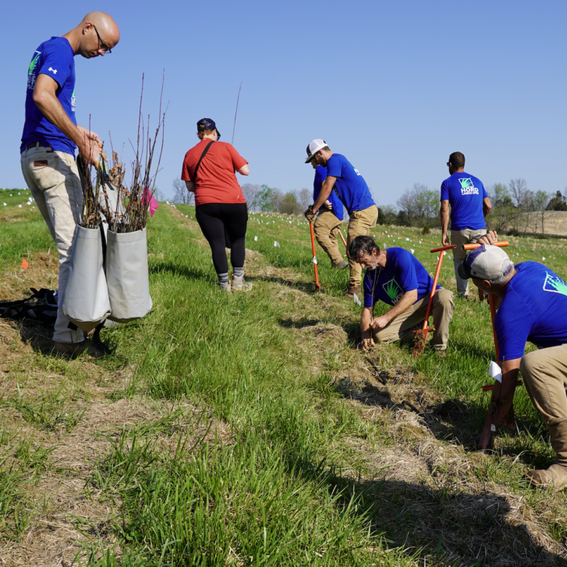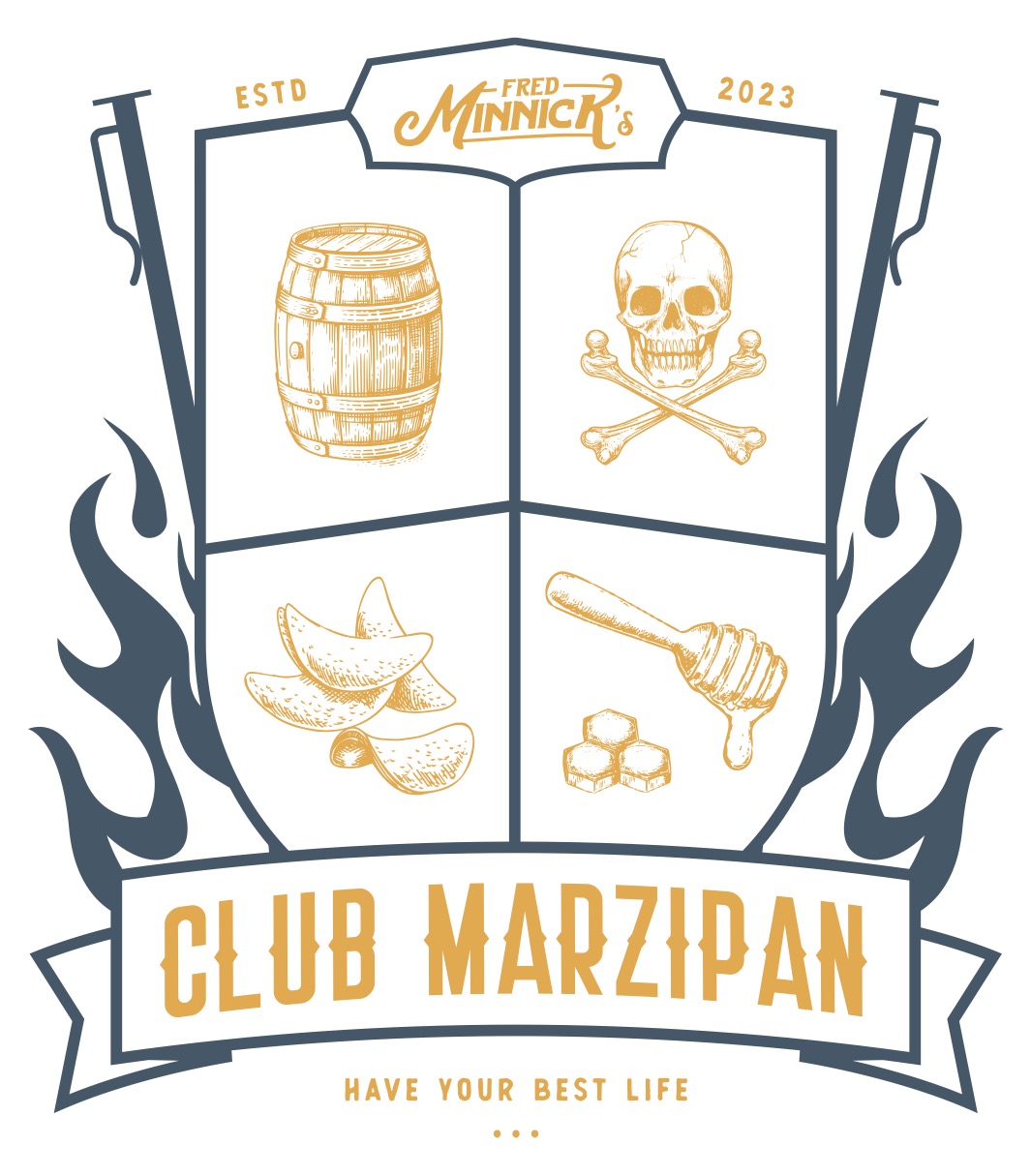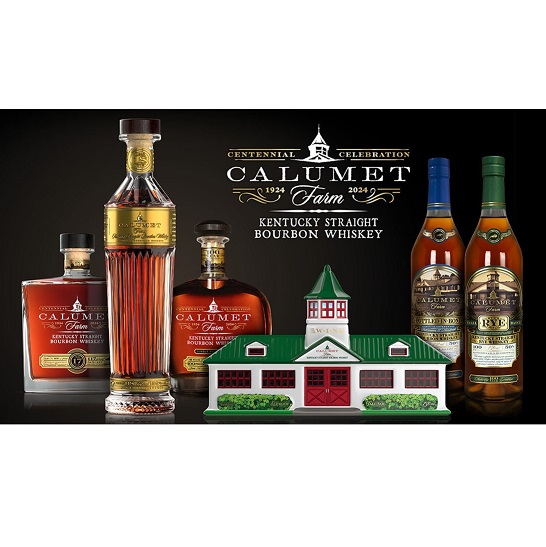Maker’s Mark Plants 2,000 White Oak Seedlings at Star Hill

University of Kentucky forestry researchers along with Maker’s Mark team members planted some 2,000 white-oak seedlings at Star Hill Farm, the home of Maker’s Mark Distillery in Loretto, Ky.
This is to complement plantings that occurred over the past several years, bringing the site of the world’s largest white-oak-tree research repository to 24 acres of some 10,000 young trees representing more than 400 varieties of white oak. The trees range in size from about six inches to several feet.
In 2020, Maker’s Mark partnered with UK’s Martin-Gatton College of Agriculture, Food and Environment to establish the oak-tree repository as an ongoing commitment to preserve the species used to make barrels in which bourbon ages. This research project, designed to last generations, studies the types of white oaks that are most resilient, as well as those that best enhance the flavor of bourbon.
“Bourbon is nature distilled,” Rob Samuels, Managing Director of Maker’s Mark and eighth-generation distiller said in a news release. “So, it’s incumbent upon us to protect the environment that gives us the ingredients for Bourbon. That’s what this project is about – gaining more knowledge of white oaks so that all of us in the bourbon industry can work better with nature now and into the future.”
Newly charred white-oak barrels are an essential product in the aging of Bourbon. Those barrels are often reused to age other spirits, such as scotch. So, understanding and protecting the American white oak is essential for both the environment and business, according to Seth DeBolt, Ph.D., Director of the James B. Beam Institute for Kentucky Spirits at the University of Kentucky and one of the lead researchers of the oak-tree repository at Maker’s Mark.
“This is a dream project,” he said. “The plan is for this research to continue for a hundred years or more into the future. And that’s the beauty of the relationship UK has with Maker’s Mark. It’s a shared vision of protecting nature.”
In a separate project headed by Dr. DeBolt, UK researchers are mapping the genome of a white oak dubbed MM1, or the Mother Tree, on Maker’s Mark property. They believe it may be the oldest white oak in Kentucky, with an estimated age between 300 and 500 years. The first research paper on the Mother Tree is expected soon.
Maker’s Mark’s commitment to sustainability is also reflected in two other projects already carried out in 2024:
- Expanding the solar array built by Kentucky Utilities which powers the brand’s rickhouses located in Loretto. Ground has also been broken on distillery property for a larger solar array that will be completed later this year.
- A soil health conference on regenerative farming, attended by some 30 local farmers who supply wheat and corn to the distillery.
Established in 1953 by Margie and Bill Samuels, Sr., Maker’s Mark has embraced and promoted environmental stewardship over the years. Recent efforts include:
- Earning B Corp Certification, which recognizes companies for their benevolence to employees, the community and the environment.
- Becoming “Regenified Verified,” as well as working with local farmers and suppliers on regenerative farming practices.
- Sourcing locally by buying 86% of ingredients to make bourbon from farmers within a 70-mile radius of Maker’s Mark.
- Owning and controlling Star Hill Farm’s watershed to protect the limestone spring-fed lakes at the distillery that provide all the water used in making Maker’s Mark Bourbon.
- Incorporating hundreds of sheep and dozens of Wagyu cattle on Star Hill Farm to graze and naturally fertilize the fields as well as provide protein for the distillery restaurant.
- Growing hundreds of acres of wheat and barley annually at Star Hill Farm, in conjunction with UK researchers, to determine which wheat varietals are most flavorful.
- Becoming a net-zero-landfill distillery in 2022 by eliminating all dumpsters through an aggressive recycling and re-use program. This includes using crushed glass for distillery paths and in gardens, shredding boxes for use as packing material and using all the distillery’s spent grain (leftover mash bill) to feed livestock.








